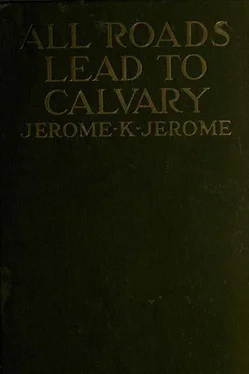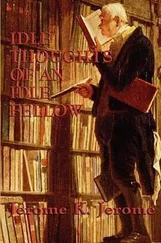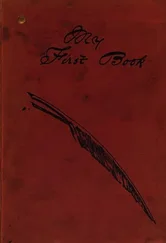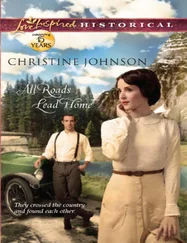Jerome Jerome - All Roads Lead to Calvary
Здесь есть возможность читать онлайн «Jerome Jerome - All Roads Lead to Calvary» весь текст электронной книги совершенно бесплатно (целиком полную версию без сокращений). В некоторых случаях можно слушать аудио, скачать через торрент в формате fb2 и присутствует краткое содержание. Город: London, Год выпуска: 1919, Издательство: Hutchinson & Co., Жанр: Классическая проза, на английском языке. Описание произведения, (предисловие) а так же отзывы посетителей доступны на портале библиотеки ЛибКат.
- Название:All Roads Lead to Calvary
- Автор:
- Издательство:Hutchinson & Co.
- Жанр:
- Год:1919
- Город:London
- ISBN:нет данных
- Рейтинг книги:3 / 5. Голосов: 1
-
Избранное:Добавить в избранное
- Отзывы:
-
Ваша оценка:
- 60
- 1
- 2
- 3
- 4
- 5
All Roads Lead to Calvary: краткое содержание, описание и аннотация
Предлагаем к чтению аннотацию, описание, краткое содержание или предисловие (зависит от того, что написал сам автор книги «All Roads Lead to Calvary»). Если вы не нашли необходимую информацию о книге — напишите в комментариях, мы постараемся отыскать её.
All Roads Lead to Calvary — читать онлайн бесплатно полную книгу (весь текст) целиком
Ниже представлен текст книги, разбитый по страницам. Система сохранения места последней прочитанной страницы, позволяет с удобством читать онлайн бесплатно книгу «All Roads Lead to Calvary», без необходимости каждый раз заново искать на чём Вы остановились. Поставьте закладку, и сможете в любой момент перейти на страницу, на которой закончили чтение.
Интервал:
Закладка:
“There is no God, apart from Man.”
“God is a spirit. His dwelling-place is in man’s heart. We are His fellow-labourers. It is through man that He shall one day rule the world.”
“God is knocking at your heart, but you will not open to Him. You have filled your hearts with love of self. There is no room for Him to enter in.”
“God whispers to you: ‘Be pitiful. Be merciful. Be just.’ But you answer Him: ‘If I am pitiful, I lose my time and money. If I am merciful, I forego advantage to myself. If I am just, I lessen my own profit, and another passes me in the race.’”
“And yet in your inmost thoughts you know that you are wrong: that love of self brings you no peace. Who is happier than the lover, thinking only how to serve? Who is the more joyous: he who sits alone at the table, or he who shares his meal with a friend? It is more blessed to give than to receive. How can you doubt it? For what do you toil and strive but that you may give to your children, to your loved ones, reaping the harvest of their good?”
“Who among you is the more honoured? The miser or the giver: he who heaps up riches for himself or he who labours for others?”
“Who is the true soldier? He who has put away self. His own ease and comfort, even his own needs, his own safety: they are but as a feather in the balance when weighed against his love for his comrades, for his country. The true soldier is not afraid to love. He gives his life for his friend. Do you jeer at him? Do you say he is a fool for his pains? No, it is his honour, his glory.”
“God is love. Why are you afraid to let Him in? Hate knocks also at your door and to him you open wide. Why are you afraid of love? All things are created by love. Hate can but destroy. Why choose you death instead of life? God pleads to you. He is waiting for your help.”
And one answered him.
“We are but poor men,” he said. “What can we do? Of what use are such as we?”
The young man looked at him and smiled.
“You can ask that,” he said: “you, a soldier? Does the soldier say: ‘I am of no use. I am but a poor man of no account. Who has need of such as I?’ God has need of all. There is none that shall not help to win the victory. It is with his life the soldier serves. Who were they whose teaching moved the world more than it has ever yet been moved by the teaching of the wisest? They were men of little knowledge, of but little learning, poor and lowly. It was with their lives they taught.”
“Cast out self, and God shall enter in, and you shall be One with God. For there is none so lowly that he may not become the Temple of God: there is none so great that he shall be greater than this.”
The speaker ceased. There came a faint sound at which she turned her head; and when she looked again he was gone.
The wounded men had heard it also. Dubos had moved forward. Madame Lelanne had risen. It came again, the thin, faint shrill of a distant bugle. Footsteps were descending the stairs. French soldiers, laughing, shouting, were crowding round them.
CHAPTER XVIII
Her father met her at Waterloo. He had business in London, and they stayed on for a few days. Reading between the lines of his later letters, she had felt that all was not well with him. His old heart trouble had come back; and she noticed that he walked to meet her very slowly. It would be all right, now that she had returned, he explained: he had been worrying himself about her.
Mrs. Denton had died. She had left Joan her library, together with her wonderful collection of note books. She had brought them all up-to-date and indexed them. They would be invaluable to Francis when he started the new paper upon which they had determined. He was still in the hospital at Breganze, near to where his machine had been shot down. She had tried to get to him; but it would have meant endless delays; and she had been anxious about her father. The Italian surgeons were very proud of him, he wrote. They had had him X-rayed before and after; and beyond a slight lameness which gave him, he thought, a touch of distinction, there was no flaw that the most careful scrutiny would be likely to detect. Any day, now, he expected to be discharged. Mary had married an old sweetheart. She had grown restless in the country with nothing to do, and, at the suggestion of some friends, had gone to Bristol to help in a children’s hospital; and there they had met once more.
Neil Singleton, after serving two years in a cholera hospital at Baghdad, had died of the flu in Dover twenty-fours hours after landing. Madge was in Palestine. She had been appointed secretary to a committee for the establishment of native schools. She expected to be there for some years, she wrote. The work was interesting, and appealed to her.
Flossie ’phoned her from Paddington Station, the second day, and by luck she happened to be in. Flossie had just come up from Devonshire. Sam had “got through,” and she was on her way to meet him at Hull. She had heard of Joan’s arrival in London from one of Carleton’s illustrated dailies. She brought the paper with her. They had used the old photograph that once had adorned each week the Sunday Post . Joan hardly recognized herself in the serene, self-confident young woman who seemed to be looking down upon a world at her feet. The world was strong and cruel, she had discovered; and Joans but small and weak. One had to pretend that one was not afraid of it.
Flossie had joined every society she could hear of that was working for the League of Nations. Her hope was that it would get itself established before young Frank grew up.
“Not that I really believe it will,” she confessed. “A draw might have disgusted us all with fighting. As it is, half the world is dancing at Victory balls, exhibiting captured guns on every village green, and hanging father’s helmet above the mantelpiece; while the other half is nursing its revenge. Young Frank only cares for life because he is looking forward to one day driving a tank. I’ve made up my mind to burn Sam’s uniform; but I expect it will end in my wrapping it up in lavender and hiding it away in a drawer. And then there will be all the books and plays. No self-respecting heroine, for the next ten years will dream of marrying anyone but a soldier.”
Joan laughed. “Difficult to get anything else, just at present,” she said. “It’s the soldiers I’m looking to for help. I don’t think the men who have been there will want their sons to go. It’s the women I’m afraid of.”
Flossie caught sight of the clock and jumped up. “Who was it said that woman would be the last thing man would civilize?” she asked.
“It sounds like Meredith,” suggested Joan. “I am not quite sure.”
“Well, he’s wrong, anyhow,” retorted Flossie. “It’s no good our waiting for man. He is too much afraid of us to be of any real help to us. We shall have to do it ourselves.” She gave Joan a hug and was gone.
Phillips was still abroad with the Army of Occupation. He had tried to get out of it, but had not succeeded. He held it to be gaoler’s work; and the sight of the starving populace was stirring in him a fierce anger.
He would not put up again for Parliament. He was thinking of going back to his old work upon the Union. “Parliament is played out,” he had written her. “Kings and Aristocracies have served their purpose and have gone, and now the Ruling Classes, as they call themselves, must be content to hear the bell toll for them also. Parliament was never anything more than an instrument in their hands, and never can be. What happens? Once in every five years you wake the people up: tell them the time has come for them to exercise their Heaven-ordained privilege of putting a cross against the names of some seven hundred gentlemen who have kindly expressed their willingness to rule over them. After that, you send the people back to sleep; and for the next five years these seven hundred gentlemen, consulting no one but themselves, rule over the country as absolutely as ever a Caesar ruled over Rome. What sort of Democracy is that? Even a Labour Government — supposing that in spite of the Press it did win through — what would be its fate? Separated from its base, imprisoned within those tradition-haunted walls, it would lose touch with the people, would become in its turn a mere oligarchy. If the people are ever to govern they must keep their hand firmly upon the machine; not remain content with pulling a lever and then being shown the door.”
Читать дальшеИнтервал:
Закладка:
Похожие книги на «All Roads Lead to Calvary»
Представляем Вашему вниманию похожие книги на «All Roads Lead to Calvary» списком для выбора. Мы отобрали схожую по названию и смыслу литературу в надежде предоставить читателям больше вариантов отыскать новые, интересные, ещё непрочитанные произведения.
Обсуждение, отзывы о книге «All Roads Lead to Calvary» и просто собственные мнения читателей. Оставьте ваши комментарии, напишите, что Вы думаете о произведении, его смысле или главных героях. Укажите что конкретно понравилось, а что нет, и почему Вы так считаете.












